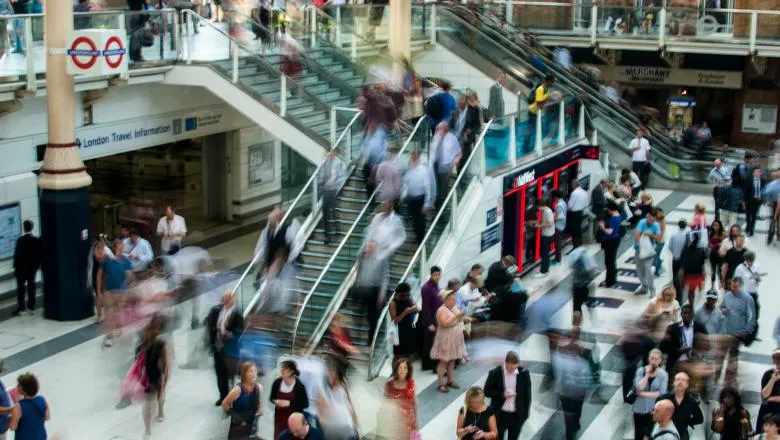23 September 2021
Are you a 'Structuralist' or an 'Individualist'?
Bobby Duffy and Rachel Hesketh
There are three groups of people in the UK with very different perspectives

Is how well people do in life mostly down to their own efforts and talents, or are people held down or helped up by their circumstances?
New analysis by the Policy Institute at King’s College London for the IFS Deaton Review of Inequalities suggests that how we answer this question forms a key dividing line in society, one that helps explain how fair or unfair we consider economic and social inequalities – and how worried or angry we are about them.
We found three roughly equally sized groups in UK.
“Structuralists” see factors beyond an individual’s control as vital in whether they get ahead – for example, whether they come from a wealthy family or had access to a good education.
“Individualists” strongly reject the idea that coming from a wealthy family, or a particular race or religion affect life chances, and, more generally, do not consider factors beyond the individual’s control to be that important.
The third group is “In the Middle” in two senses. They see outcomes as a mix of individual and structural drivers, but also don’t have strong views on many aspects of inequality – nothing is “very” fair or unfair.
These distinct worldviews shape how we see many key issues. For example, 65% of Structuralists think that discrimination is one reason Black people are more likely to be unemployed than white people, while only 33% of Individualists agree.
Structuralists are also much more worried about the impact of the pandemic: 63% think the crisis will increase inequality, compared with 31% of Individualists.
This is not to say that Structuralists believe that individual effort is unimportant, or that we’re entirely defined by our circumstances. In fact, there is a very high level of belief across all three groups in Britain that hard work and ambition should be rewarded – it’s just that Structuralists think this is not sufficient to succeed.
This difference in how we see the world explains many of the key divisions we see in Britain today, from which political party we support, to our views on “culture war” issues such as the causes of racial inequality.
It also helps explain some apparent contradictions in our attitudes. For example, all the way back to the early 1980s, a large and stable majority of around 80% of us have agreed that income gaps between rich and poor are too large in the UK. But, over that same period, only around 40% of us have agreed that the government should redistribute income from the better-off to the less well off.
This gap between agreement there’s an inequality problem and calling for action will be tied up in how we see it’s causes: if we see it as largely down to individual effort rather than factors outside of the individuals’ control, we’re much less likely to see it as unfair and warranting government intervention.
There is, then, no one attitude to inequality in the UK, which makes consensus difficult and explains why we so often seem to be talking past each other: different groups see the same issue entirely differently.
But there are a couple of areas of common ground to build on. First, the experience of the pandemic has at least opened a space for discussion on how we support people in circumstances beyond their control. For example, even in the Individualists group, four in ten agree that the experience of Covid-19 strengthens the case for government playing a more active role in the economy in the future.
And, second, reducing the gap between rich and poor areas is a rare unifying aspect in our attitudes to inequality. When we ask which types of inequality are most serious in Britain, inequalities between more and less deprived parts of the country come at or near the top for Structuralists, Individualists and those In the Middle.
Our shared national concern for place-based inequalities is highly unusual: when we put the question to a set of international respondents, Britons were much more likely to see area disparities as a serious national issue compared with the rest of Europe and the US.
The government’s “levelling-up” agenda therefore really chimes across the spectrum, promising to tackle an issue people are concerned about, irrespective of their worldview on inequality and fairness. For the public, this is primarily not about a simplistic north-south divide. The contrasting experiences of more and less deprived areas is visible all across the country, and focus groups by Ipsos MORI suggest that our concerns are more often about the unequal life chances that we witness on a day-to-day basis in our own towns and cities.
We have a collective aversion to “postcode lotteries” that extends well beyond health services and school catchment areas to life chances more generally – and it’s felt by all groups, Structuralists and Individualists alike.
Professor Bobby Duffy is Director of the Policy Institute at King's College London.
Rachel Hesketh is a Research Associate at the Policy Institute at King's College London.
